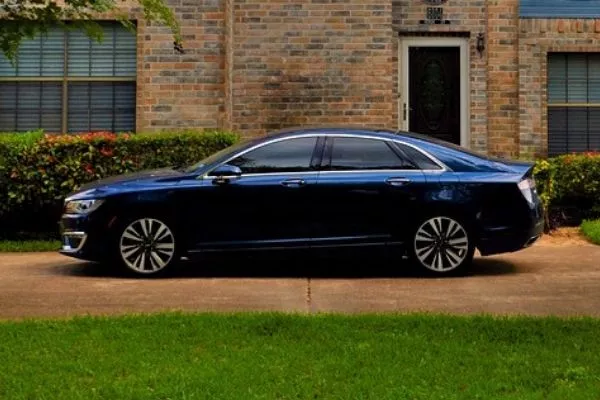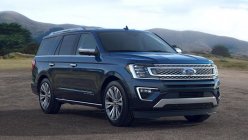The current COVID-19 outbreak has seen most industries grinding to a halt, including car manufacturers. That means no new units are rolling off the assembly lines, or inventories of finished products are gathering dust in factory stockyards, impacting orders and deliveries across the globe.
No new sales means no revenue coming in, making it difficult for carmakers to pay salaries for its workforce, as well as managing operating costs and maintaining finances for research and development.

Car-related transactions as we know them will change in a post-COVID-19 world
Consequently, customers are also affected. With businesses closed, the income streams of many households have taken a hit. Buyers who would otherwise be making the rounds of car dealerships right now, and existing customers paying for their car’s monthly amortization, are realigning their finances towards essential items like food and medicine.
Carmakers are doing their share by offering extensions on monthly payments (through their partner banks), maintenance servicing, and insurance, but the business climate is still under a cloud of uncertainty.
>>> Related: COVID-19 Update: These car brands implement PMS, warranty extensions
The years of offering low- and even zero-down payment on auto loans have finally caught up with us, with COVID-19 exposing just how vulnerable our positions are.
If and when car companies finally restart their assembly lines, expect to see changes in the way they conduct business. Social distancing and constant disinfection measures are likely, as well as fewer test drives and more online transactions.

It's hard knowing you're still paying for a car that can't even leave the garage
But considering that car sales have plunged during the first quarter of 2020, is it time for carmakers to adopt zero-interest financing and deferred payments?
In the U.S., which has the highest number of COVID-19 cases worldwide so far, the auto industry has also been adversely affected. For many brands, brisk sales in January and February were negated by the time March rolled in, and prospects are not so good for April either.
As a result, carmakers there are coming up with what they call “coronavirus packages”, enabling customers to buy their preferred cars while serving as an opportunity for dealerships to move inventory (and keep the cash coming in somehow).
These measures are not actually unique to the current pandemic, since they’re typically deployed during downturns until the economy recovers.

The U.S. car market has financing options to deal with low car sales
One of these is by promoting interest-free payments on car loans; the annual percentage rate (APR) otherwise imposed on term payments is waived, which means you only pay the principal amount for the entire duration of the loan, resulting in significant savings by the time the car is fully paid for.
There are several caveats, though:
- In order to qualify for a 0% interest plan, you’ll need to have a spotless credit history i.e. no instances of delayed payments or defaults on previous loans you’ve made.
- A bigger down payment may be necessary to avail of a zero-interest car loan.
- An interest-free loan might typically apply only for the latest models, and even then, just for the range-topping variants.
- If you’re trading your older car in for a newer model, there’s a chance that it will be appraised on the cheaper side.
- Having interest-free payments involves rigid terms, apart from making it difficult for you to negotiate the car’s sticker price (tough call, since Filipinos love to haggle).
- Zero-interest rates are typically for loans not exceeding 60 months or 5 years.
>>> Related: LIST: Banks that extend car loan payment deadlines amid COVID-19
Deferred payments are also another way to ease the financial burden on consumers. These allow borrowers to skip payments for a set length of time in consideration of financial constraints, say three or six months, after which they are expected to start paying their dues again.
Customers who want to avail of a deferral should notify their respective lenders in writing, explaining the reasons for the request.
The lender will then run a credit investigation on the borrower, and depending on the outcome (and if the lender agrees), a legal document called a forbearance agreement is issued, outlining the relevant terms such as when payment is expected to resume and any fees, penalties, or interest owed.

Longer payment terms eat away at your car's market value
>>> Related: 3 ways car brands got creative to cope with current COVID-19 crisis
The payments skipped during the deferment period will be added to your original loan term, which could extend it by up to six months. The extra time will also carry interest for which the borrower is responsible.
Deferred payments also have a hidden cost: the longer it takes for you to finish the loan, the older your car will be by the time it’s done, by way of depreciation, high mileage, or both. The market value will have diminished considerably, by the time you put it up for sale or offer to trade it in for a newer model.
It’s practically certain that the auto industry coming out of COVID-19 won’t be the same as it was. Carmakers will need to shift a lot of gears before they manage to find that sweet spot and regain the momentum they lost, or risk stalling altogether.
For more interesting automotive topics, follow Philkotse.com.
Recent posts
- How the general quarantine will affect our drives May 04, 2020
- DTI declines car dealers' appeal to reopen Apr 27, 2020
- Online car buying will rise after COVID-19, but won't be permanent Apr 23, 2020
- Will car sales go up as a result of COVID-19 pandemic? Mar 24, 2020
- Philippine car dealerships stop operations amid COVID-19 woes Mar 24, 2020












